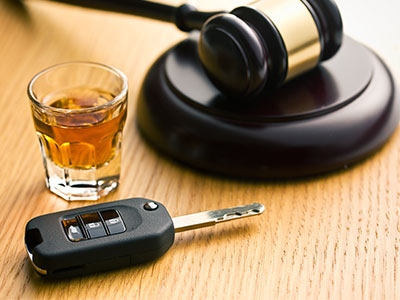DUI Law In New Jersey: Avoid Harsh Penalties

This article unveils:
- The penalties you may face if charged with a DWI.
- The complex way DWI offenders are categorized after being charged.
- Why a third-time (or greater) DWI offense is something you must deal with.
What Are the Consequences of Drugged Driving in New Jersey?
Under New Jersey DUI laws, you face many consequences for driving while under the influence of alcohol or drug. They include:
- Fines;
- Mandatory attendance at Intoxicated Driver Resource Center [“IDRC”];
- Administrative fees to the Motor Vehicle Commissions;
- Increases to your insurance premiums;
- A permanently stained driving record that cannot be expunged;
- Potential jail for first-time offenders and mandatory jail for second and third offenders.
To What Levels of Punishment Does New Jersey Law Expose Those Convicted of Drunk or Drugged-Driving?
Understanding New Jersey DUI law in relation to the levels of punishment the state assigns to drugged driving is a little complicated. Here we try to break it down as simply yet thoroughly as possible so you are empowered to anticipate how your situation may play out.
First-time drunk driving offenders are categorized into three tiers. These tiers correlated to the severity in which they were under the influence of a substance as demonstrated by a blood alcohol content. These tiers are as follows:
- Lower – breath test result below 0.10 or no breath test result.
- Middle – breath test result of between 0.10 and 0.14.
- High – breath test result of 0.15 or higher.
Regardless of the tier you are put into, you will face an indefinite driving privilege revocation. This ends with the installation of an alcohol ignition interlock device in whatever vehicle you principally operate. After this, lower and middle-tier individuals can go to the motor vehicle commission and get their physical driver’s license with the interlock restriction imprinted on it. Practically speaking, this ends your indefinite revocation.
Beyond this, lower-tier defendants are restricted to the car with an interlock installed for three months. Middle-tier defendants are restricted to the car with an interlock installed for seven to twelve months.
The upper tier works differently. Like the lower tiers, the indefinite revocation ends with the installation of the interlock, but it does not stop there. You then must suffer a complete suspension of driving privileges. This means that you cannot legally operate a vehicle at all for a period of between four to six months. Then, you will have to get your license with the imprint at the end of this period, when you will be restricted to the vehicle equipped with an interlock for nine to fifteen months beginning when you get the license back.
As a first-time offender, you must also pay fines between $640 and $890.
For those convicted of a first offense of drugged driving, the court must revoke your driving privilege for no less than seven and no more than 12 months. There is no requirement for an alcohol ignition interlock device.
If you have multiple offenses, you face much more severe consequences. There is generally only one tier for second and third-time offenders, regardless whether the conviction is for drunk driving or drugged driving.
Second-time offenders face a driving privilege revocation of one to two years. They cannot drive at all during this period. This is followed by two to four years when they can only operate a vehicle with an alcohol ignition interlock device installed. These individuals also face a mandatory jail term of two to ninety days, although judges typically commute a two-day jail term or 48 hours at an IDRC.
Second-time offenders must also perform 30 days of community service. A day of community service is six hours which comes out to 180 hours of community service required.
Second-time offenders must also pay between $890 and $1,390 in fines.
Third-time offenders face a mandatory revocation of driving privileges of eight years, followed by interlock restriction between two and four years. They also face six months in jail and may be required to attend IDRC classes. Whether this is part of their sentence or categorized administratively, they would likely need to complete a twelve-hour version of the IDRC during the year immediately preceding restoration. Many fail to remember this, understandably so. Who would remember something like this after eight years? Nevertheless, it can delay the restoration of your driving privileges. As such, it is incredibly wise to consult an attorney before the scheduled restoration of driving privileges.
Above this, you will be responsible for $1,390 in fines and assessments as a third-time offender.
Everyone convicted of DWI in New Jersey also faces special taxes called surcharges of $3,525 to $3,625, as well as administrative fees for the IDRC and restoration of driving privileges, generally between $430 and $650. Additionally, if your license was revoked for more than four years, you must retake written and driving tests as if you were a new driver.
Your insurance premiums will also explode at a rate of about two to four times for three years or so. With this, insurance companies may treat you as a new driver for being without a license for three years or longer.
Depending on your job, there are implications in the workplace for being convicted of these crimes. Doctors and nurses especially risk losing standing and thus the ability to practice.
With the guidance of a skilled attorney for DUI Law, you can have the peace of mind that comes with knowing that, if there is a way out of this crisis, we’ll find it. For more information on DUI Law in New Jersey, a free initial consultation is your next best step. Get the information and legal answers you are seeking by calling (732) 218-9090 today.

